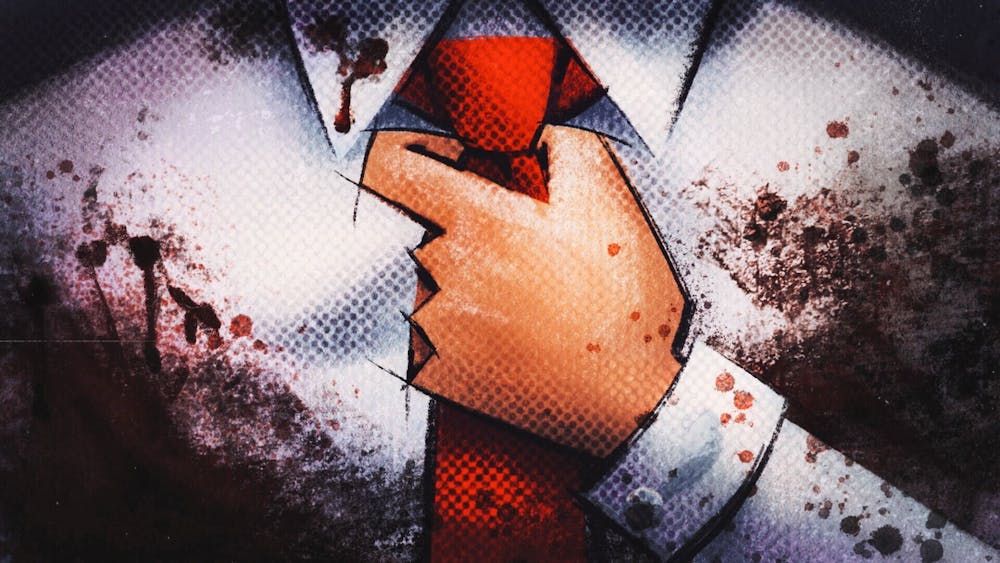
Had Charlie Javice known that falsifying the worth of her startup would lead to a felony indictment? Had she realized that people don’t dupe J.P. Morgan — one of the nation’s most powerful financial institutions — and get away with it? Or had she truly convinced herself that she, a twenty-something Wharton graduate from Westchester, was intelligent enough, special enough to pull the wool over the eyes of the American criminal justice system?
Questions like these are complicated to answer. They become even more complicated when the culprit herself denies any accountability. The truth is that it takes a special brand of narcissism to believe that any one person should cheat or lie their way into millions of dollars. Especially when that scam comes at the cost of America’s most economically vulnerable populations.
It is this philosophy which brings me to the larger point of this article: white-collar crime is not non-violent and it is certainly not victimless. Such offenses exacerbate the gap between rich and poor, producing the economic environment that facilitates violent street crime. Given that Penn has seen its fair share of alums indicted on corporate crimes within the last five years — most notably, former POTUS and 1968 Wharton graduate Donald J. Trump — Penn students must understand the violence of white-collar crime, our proximity to it, and how to protect ourselves from becoming unknowing perpetrators of such harm.
The mode through which white collar crime becomes violent is not forthright. Oftentimes corporate criminals defraud shareholders. Sometimes they defraud the U.S. government itself, through tax evasion or embezzlement — schemes which ultimately reduce resources for government-aided programs like unemployment compensation and public healthcare. But when social services are withheld from a nation’s most economically-marginalized groups, people become desperate. And when people are desperate, violent crime spikes.
Perhaps the best example of the causal relationship between white-collar crime and violence is presented by the Enron scandal. In 2001, Enron — one of the world’s largest energy traders and suppliers — saw its stock price plummet from $90.75 a share to $0.26. This came following public exposure to the company’s scheme of artificially inflating profits. Consequently, global energy prices fell and the world market entered an economic recession. Crime rates in the U.S. spiked that same year, despite a steady decline over the previous decade. Homicide rates increased by 3.1% while cases of robberies, burglaries and car thefts increased by 2%.
Criminologists argue that an increase in crime following economic collapse is to be expected. So goes Robert K. Merton's Strain Theory, which posits that crime arises when individuals realize a disconnect between socially-enforced goals — wealth, success, status — and their means to achieving such goals. Upon understanding that their access to culturally desired ideals is limited, marginalized people will experience strain. Strained individuals will react to their situation in any one of five defined modes: conformity, innovation, ritualism, retreatism, or rebellion.
Under conformity, marginalized people accept institutional obstructions and continue to follow societal norms in attempts to achieve success. On the flip side, marginalized individuals may innovate — abandoning conventional means for achieving socially-defined goals, in favor of criminal methods — or retreat — rejecting both cultural goals and the means to achieve them, often resorting to substance abuse to escape the strain. As the gap between the means necessary and the means available to obtain social ideals compounds, that strain multiplies.
White-collar crime is explicit in aggravating this gap. It feeds the monster that has created the strain in the first place.
And while the aforementioned Enron is certainly a case of extremes, the veiled violence of corporate greed still looms. It haunts this very campus. McKinsey and Company, a prestigious global consulting firm, was the number one employer of Penn postgraduate students entering consulting in 2021. That same year, the firm settled in a $600 million lawsuit over its role in encouraging Purdue Pharma, the manufacturer of Oxycontin, to turbocharge drug sales — a practice that largely contributed to the opioid crisis. Since its genesis, the drug epidemic has disproportionately devastated marginalized communities, with poor people accounting for a quarter of opioid-related deaths.
Here, the line between corporate greed and marginalized suffering is clear as day. McKinsey’s corporate scandal helped foment a tragedy that has claimed over 645,000 lives in the past two decades. It does not matter that the ringleaders of the corporate scheme were not common street criminals; that they were college-educated men and women in suits. The aftereffects of their transgression were just as bloody and violent as any street crime, albeit on a larger scale.
Penn students should be extremely concerned about the pervasiveness of corporate greed on this campus, and the vicious consequences which it produces. The mission of this University is to offer young people the tools to create new knowledge and benefit communities around the world. Only with a thorough understanding of the evils-at-be may Penn students use their education to impact good, meaningful change. Given the extensive presence of corporate firms on-campus, Wharton should consider making business ethics not only an optional graduation requirement, but a mandatory one. Such a step would help to safeguard the moral futures of Penn alums.
JULU NWAEZEAPU is a College junior studying behavioral and computational neuroscience from Chicago, IL. Her email is julunwae@sas.upenn.edu.
The Daily Pennsylvanian is an independent, student-run newspaper. Please consider making a donation to support the coverage that shapes the University. Your generosity ensures a future of strong journalism at Penn.
Donate







